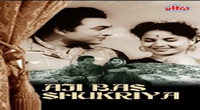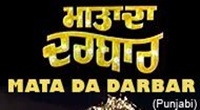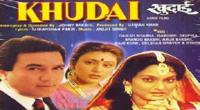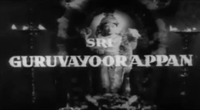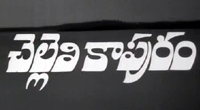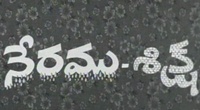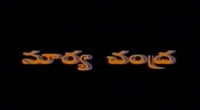Shah (/???/; Persian: ????, translit. Š?h, pronounced , "king") is a title given to the emperors, kings, princes and lords of Iran (historically also known as Persia). It was also adopted by the kings of Shirvan (a historical Iranian region in Transcaucasia) namely the Shirvanshahs, the rulers and offspring of the Ottoman Empire (in that context spelled as ?ah and ?eh), Mughal emperors of the Indian Subcontinent, the Bengal Sultanate, as well as in Afghanistan. In Iran (Persia and Greater Persia) the title was continuously used; rather than King in the European sense, each Persian ruler regarded himself as the Š?hanš?h (King of Kings) or Emperor of the Persian Empire.
 | |
|
Emperor: Padishah, Shahanshah | |
|
High King: Maharaja | |
|
King: Raja, Sultan, Shah, Khan | |
| Royal Prince : Shahzada (?ehzade), Mirza | |
| Noble Prince : Sahibzada | |
| Nobleman: Nawab, Baig, Begzada | |
| Royal house : Damat | |
| Governmental : Lala, Agha, Hazinedar |
Contents
Etymology
The word descends from Old Persian xš?ya?iya "king", which (for reasons of historical phonology) must be a borrowing from Median, and is derived from the same root as Avestan xša?ra-, "power" and "command", corresponding to Sanskrit (Old Indic) k?atra- (same meaning), from which k?atriya-, "warrior", is derived. The full, Old Persian title of the Achaemenid rulers of the First Persian Empire was Xš?yathiya Xš?yathiy?n?m or Š?he Š?h?n, "King of Kings" or "Emperor".
History
Š?h, or Š?hanš?h (King of Kings) to use the full-length term, was the title of the Persian emperors. It includes rulers of the first Persian Empire, the Achaemenid dynasty, who unified Persia in the sixth century BC, and created a vast intercontinental empire, as well as rulers of succeeding dynasties throughout history until the twentieth century and the Imperial House of Pahlavi.
While the Ottoman Sultans never styled themselves as Shah, but rather Sultan, their male offspring received the title of ?ehzade, or prince (literally, "offspring of the Shah", from Persian shahzadeh).
The full title of the Achaemenid rulers was Xš?ya?iya Xš?ya?iy?n?m, literally "King of Kings" in Old Persian, corresponding to Middle Persian Š?h?n Š?h, and Modern Persian ??????? (Š?hanš?h). In Greek, this phrase was translated as ???????? ??? ???????? (basileus t?n basilé?n), "King of Kings", equivalent to "Emperor". Both terms were often shortened to their roots shah and basileus.
In Western languages, Shah is often used as an imprecise rendering of Š?hanš?h. The term was first recorded in English in 1564 as a title for the King of Persia and with the spelling Shaw. For a long time, Europeans thought of Shah as a particular royal title rather than an imperial one, although the monarchs of Persia regarded themselves as emperors of the Persian Empire (later the Empire of Iran). The European opinion changed in the Napoleonic era, when Persia was an ally of the Western powers eager to make the Ottoman Sultan release his hold on various (mainly Christian) European parts of the Ottoman Empire, and western (Christian) emperors had obtained the Ottoman acknowledgement that their western imperial styles were to be rendered in Turkish as padishah.
In the twentieth century, the Shah of Persia, Mohammad Reza Pahlavi, officially adopted the title ??????? Š?hanš?h and, in western languages, the rendering Emperor. He also styled his wife ?????? Shahb?nu ("Empress"). Mohammad Reza Pahlavi was the last Shah, as the Iranian monarchy was abolished after the 1979 Iranian Revolution.
Ruler styles
- From the reign of Ashot III (952/53–77), the Bagratid kings of Armenia used the title shahanshah, meaning "king of kings".
- The title Padishah (Great King) was adopted from the Iranians by the Ottomans and by various other monarchs claiming imperial rank, such as the Mughals that established their dynasty in the Indian subcontinent.
- Another subsidiary style of the Ottoman and Mughal rulers was Shah-i-Alam Panah, meaning "King, refuge of the world".
- The Shah-Armens ("Kings of Armenia", sometimes known as Ahlahshahs), used the title Sh?h-i Arman (lit. "Shah of Armenia").
- Some monarchs were known by a contraction of the kingdom's name with shah, such as Khwarezmshah, ruler of the short-lived Muslim realm of Khwarezmia, or the Shirvanshah of the historical Iranian region of Shirvan (present-day Republic of Azerbaijan)
- The kings of Georgia called themselves shahanshah alongside their other titles. Georgian title mepetmepe (also meaning King of Kings ) was also inspired by the shahanshah title.
Shahzadeh
Shahzadeh (Persian ??????? Š?hz?deh). In the realm of a shah (or a more lofty derived ruler style), a prince or princess of the blood was logically called shahzada as the term is derived from shah using the Persian patronymic suffix -z?deh or -z?da, "born from" or "descendant of". However the precise full styles can differ in the court traditions of each shah's kingdom. This title was given to the princes of the Ottoman Empire (?ehzade, Ottoman Turkish: ??????) and was used by the princes of Islamic India (Shahz?da, Urdu: ??????) such as in the Mughal Empire. It is to be noted, however, that the Mughals and the Sultans of Delhi were not of Indian origin but of Mongol-Turkic origin and were heavily influenced by Persian culture,[10] a continuation of traditions and habits ever since Persian language was first introduced into the region by Persianised Turkic and Afghan dynasties centuries earlier.[11][12]
Thus, in Oudh, only sons of the sovereign shah bahadur (see above) were by birth-right styled "Shahzada [personal title] Mirza [personal name] Bahadur", though this style could also be extended to individual grandsons and even further relatives. Other male descendants of the sovereign in the male line were merely styled "Mirza [personal name]" or "[personal name] Mirza". This could even apply to non-Muslim dynasties. For example, the younger sons of the ruling Sikh maharaja of Punjab were styled "Shahzada [personal name] Singh Bahadur".
The corruption shahajada, "Shah's son", taken from the Mughal title Shahzada, is the usual princely title borne by the grandsons and male descendants of a Nepalese sovereign, in the male line of the Shah dynasty.
For the heir to a "Persian-style" shah's royal throne, more specific titles were used, containing the key element Vali Ahad, usually in addition to shahzada, where his junior siblings enjoyed this style.[13]
Other styles
- Shahbanu (Persian ??????, Šahb?n?): Persian term using the word shah and the Persian suffix -banu ("lady"): Empress, in modern times, the official title of Empress Farah Pahlavi.
- Shahmam (Persian ?????, "Šahm?m") : Empress mother.
- Shahdokht (Persian ?????? Š?hdoxt) is also another term derived from shah using the Persian patronymic suffix -dokht "daughter, female descendant", to address the Princess of the imperial households.
- Shahpur (Persian ?????? Š?hpu:r) also been derived from shah using the archaic Persian suffix -pur "son, male descendant", to address the Prince.
- ?ehzade (Ottoman Turkish), (???????): Ottoman Turkish termination for prince (lit; offspring of the Shah) derived from Persian Shahzadeh.
- malik al-muluk "king of kings", an Arabic title used by the Iranian Buyids, a Persianized form of the Abbasid amir al-umara
Related terms
- Satrap, the term in Western languages for a governor of a Persian province, is a distortion of xša?rap?van, literally "guardian of the realm", which derives from the word xša?ra, an Old Persian word meaning "realm, province" and related etymologically to shah.
- Maq'ad-i-Shah, (Persian ???? ??? Maq'ad-i-Shah), the phrase from which the name of Mogadishu is believed to be derived, which means "seat of the Shah", a reflection of the city's early Persian influence.[14]
- The English word "check", in all senses, is in fact derived from "shah" (from Persian via Arabic, Latin and French). Related terms such as "checker" and "chess" and "exchequer" likewise originate from the Persian word, their modern senses having developed from the original meaning of the king piece.[citation needed]

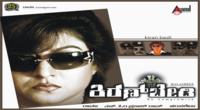
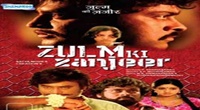


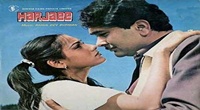
.jpg)
